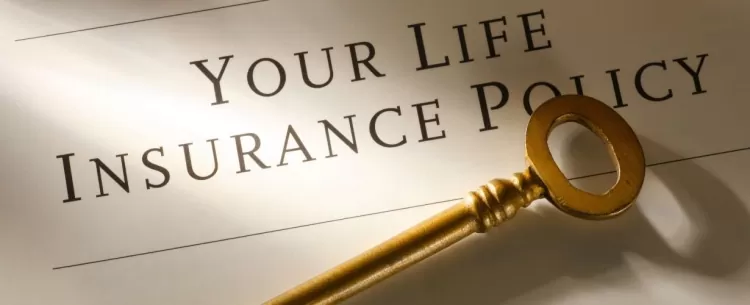Everything You Need to Know About Insurance: Choosing the Right Policy for Your Needs
Insurance plays a critical role in protecting your financial future, offering peace of mind in an unpredictable world. Whether it’s car insurance, health insurance, or life insurance, having the right coverage ensures that you are prepared for unforeseen events. This guide will explore the essentials of insurance, from its importance to choosing the best policies tailored to your needs.

What Is Insurance and Why Do You Need It?
Insurance is a financial contract between you and an insurer that protects you from unexpected losses. It acts as a safety net, ensuring that major expenses like medical bills, vehicle repairs, or property damage don't cripple your finances.
Key Benefits of Insurance:
- Risk Management: Helps mitigate financial risks associated with accidents, illness, or other unforeseen events.
- Financial Security: Provides a cushion during emergencies, safeguarding your savings.
- Legal Compliance: Some insurance, such as auto insurance, is mandatory in most jurisdictions.
Types of Insurance Policies
Insurance is not one-size-fits-all; there are numerous types of policies catering to specific needs.
1. Life Insurance
Life insurance provides financial support to your loved ones after your passing.
- Whole Life Insurance: Covers your entire life and includes a savings component.
- Term Life Insurance: Offers coverage for a specific period, such as 10 or 20 years.
- Universal Life Insurance: Combines permanent coverage with investment options.
"Best life insurance companies" "affordable term life insurance" "whole life insurance rates."
2. Health Insurance
Health insurance covers medical expenses, ensuring you get quality healthcare without worrying about high costs.
- Individual Health Plans: Ideal for self-employed or unemployed individuals.
- Family Health Plans: Covers the medical needs of your entire family.
- Critical Illness Insurance: Provides a lump sum for serious illnesses like cancer or heart disease.
"best health insurance plans" "compare health insurance" "critical illness coverage"
3. Auto Insurance
Auto insurance protects you against financial losses caused by car accidents, theft, or damage.
- Liability Coverage: Covers damages to others in an accident you caused.
- Collision Coverage: Pays for damages to your car in an accident.
- Comprehensive Coverage: Covers non-collision incidents like theft, vandalism, or natural disasters.
"cheap car insurance" "compare auto insurance rates" "full coverage car insurance"
4. Homeowners Insurance
Protecting your home is essential, as it is one of your most significant investments. Homeowners insurance covers damages to your property and belongings.
- Standard Coverage: Covers fire, theft, and certain natural disasters.
- Flood Insurance: A separate policy to protect against flood damage.
- Earthquake Insurance: Covers damages caused by seismic activity.
"best homeowners insurance" "compare home insurance quotes" "flood insurance cost"
How to Choose the Right Insurance Policy
Selecting the best insurance policy involves careful consideration of your needs, budget, and long-term goals.
1. Assess Your Needs
Evaluate your financial situation, dependents, and the potential risks you face.
- Are you looking for health coverage for your family?
- Do you need life insurance to secure your children’s future?
2. Compare Policies
Don’t settle for the first policy you find. Use comparison tools to evaluate premiums, coverage, and benefits from multiple insurers.
"compare insurance quotes online" "cheapest insurance providers" "best insurance rates"
3. Check the Insurer’s Reputation
Research customer reviews, claim settlement ratios, and financial stability. Look for companies with strong customer support and a proven track record.
4. Understand the Terms
Always read the fine print! Pay attention to:
- Exclusions: What the policy does NOT cover.
- Premiums: The amount you pay monthly or annually.
- Deductibles: The amount you must pay out-of-pocket before the insurer covers the rest.
Tips for Reducing Insurance Costs
Insurance premiums can be expensive, but there are ways to minimize costs:
- Bundle Policies: Combine auto, home, and life insurance for discounts.
- Increase Deductibles: Opt for a higher deductible to lower premiums.
- Maintain a Good Credit Score: Insurers often check credit scores when determining rates.
- Shop Around: Compare multiple providers to find the best deal.
"how to save on insurance" "insurance discounts," "cheap insurance tips"
Common Mistakes to Avoid When Buying Insurance
- Underinsuring: Opting for minimal coverage to save money can backfire in the long run.
- Ignoring Exclusions: Failing to read the exclusions can leave you unprotected when you need it most.
- Delaying Purchase: Waiting too long to buy insurance, especially life or health coverage, can increase premiums due to age or health issues.
Future Trends in Insurance
The insurance industry is rapidly evolving, with technological advancements transforming how policies are sold and managed.
- Telematics for Auto Insurance: Usage-based insurance where premiums depend on driving behavior.
- AI-Powered Claim Processing: Faster and more efficient claims settlement.
- Microinsurance: Affordable policies catering to low-income individuals.
- Climate-Specific Coverage: Policies designed to address risks like wildfires, hurricanes, and floods.
Conclusion
Insurance is a crucial part of financial planning, offering protection and peace of mind. Whether you're buying your first policy or reviewing your current coverage, understanding the basics and comparing options will help you make informed decisions. Take your time to explore your needs, research policies, and choose a reliable insurer to secure your financial future.
Call to Action:
Ready to find the best insurance for your needs? Compare quotes today and take the first step toward financial security!
What's Your Reaction?





















